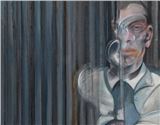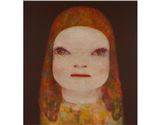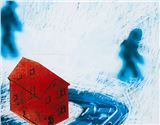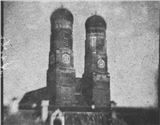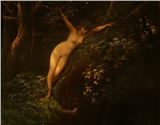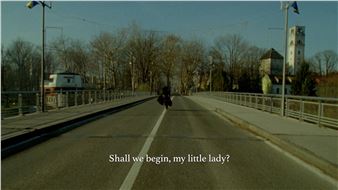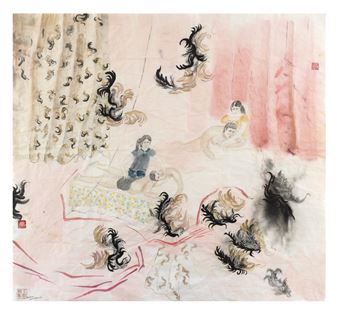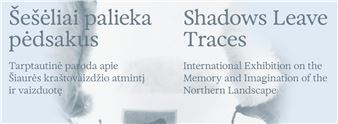Jonas Mekas: The Camera Was Always Running
Jonas Mekas: The Camera Was Always Running explores the breadth and import of MekasвҖҷs life, art, and legacy in the field of the moving image. Coinciding with the centennial of his birth, the exhibition surveys MekasвҖҷs 70-year career and includes 11 films presented in an immersive environment, photography, and previously unseen archival materials.
Forced to flee his native Lithuania during the final moments of World War II in 1944, Mekas was unable to return until 1971. After spending five years stateless and homeless in a Nazi work camp and then Displaced Persons camps throughout Germany, Mekas (b. 1922, SemeniЕЎkiai, Lithuania; d. 2019, Brooklyn, New York) emigrated to New York City with his brother Adolfas in 1949. A penniless, war-weary refugee, he swiftly integrated into the cityвҖҷs thriving counterculture nonetheless, becoming a central organizer, and later a prolific filmmaker, within the avant-garde community. Like many emigrГ©s in the aftermath of World War IIвҖ”as for so many across the globe todayвҖ”his art was profoundly marked by his refugee experience: the loss, memory, and longing for a home he permanently left behind in 1944. The relationship between exile and creativity is always at the heart of his work and is the exhibitionвҖҷs central theme.
Over seven decades, Mekas made 93 films and videos, amassing footage that was both a record of his life and a resource for his art. He was the author, founder, and co-founder of numerous artist-run cooperatives, distribution networks, and writings on film: in 1954, he co-founded Film Culture, the first journal of American film criticism; from 1958-71, he penned вҖңMovie Journal,'' the first critical column on cinema in the Village Voice; in 1962 he co-founded The Film-makersвҖҷ Co-op, among the earliest organizations to support experimental film production, screening, and distribution on a large scale; in 1969 he co-founded Anthology Film Archives which becameвҖ”and remainsвҖ”a focal point for New YorkвҖҷs experimental cinema scene; and finally, between 1968 and 1971, the Film-makersвҖҷ Co-op presented the screening and conversation series Avant Garde Tuesdays at the Jewish Museum.
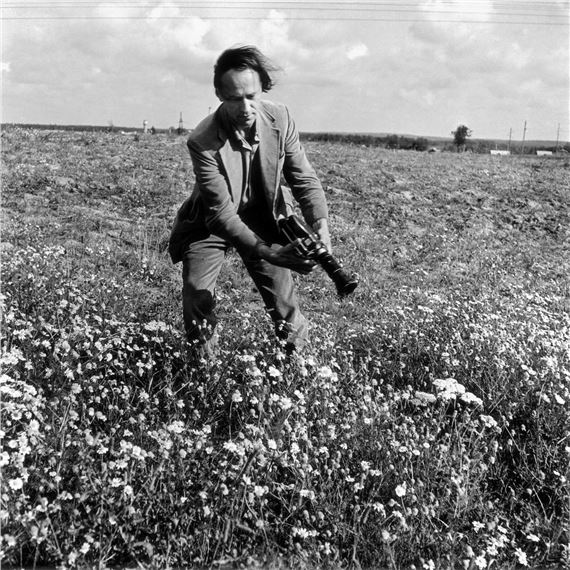
Recommended for you
Jonas Mekas: The Camera Was Always Running explores the breadth and import of MekasвҖҷs life, art, and legacy in the field of the moving image. Coinciding with the centennial of his birth, the exhibition surveys MekasвҖҷs 70-year career and includes 11 films presented in an immersive environment, photography, and previously unseen archival materials.
Forced to flee his native Lithuania during the final moments of World War II in 1944, Mekas was unable to return until 1971. After spending five years stateless and homeless in a Nazi work camp and then Displaced Persons camps throughout Germany, Mekas (b. 1922, SemeniЕЎkiai, Lithuania; d. 2019, Brooklyn, New York) emigrated to New York City with his brother Adolfas in 1949. A penniless, war-weary refugee, he swiftly integrated into the cityвҖҷs thriving counterculture nonetheless, becoming a central organizer, and later a prolific filmmaker, within the avant-garde community. Like many emigrГ©s in the aftermath of World War IIвҖ”as for so many across the globe todayвҖ”his art was profoundly marked by his refugee experience: the loss, memory, and longing for a home he permanently left behind in 1944. The relationship between exile and creativity is always at the heart of his work and is the exhibitionвҖҷs central theme.
Over seven decades, Mekas made 93 films and videos, amassing footage that was both a record of his life and a resource for his art. He was the author, founder, and co-founder of numerous artist-run cooperatives, distribution networks, and writings on film: in 1954, he co-founded Film Culture, the first journal of American film criticism; from 1958-71, he penned вҖңMovie Journal,'' the first critical column on cinema in the Village Voice; in 1962 he co-founded The Film-makersвҖҷ Co-op, among the earliest organizations to support experimental film production, screening, and distribution on a large scale; in 1969 he co-founded Anthology Film Archives which becameвҖ”and remainsвҖ”a focal point for New YorkвҖҷs experimental cinema scene; and finally, between 1968 and 1971, the Film-makersвҖҷ Co-op presented the screening and conversation series Avant Garde Tuesdays at the Jewish Museum.
Artists on show
Contact details

Related articles
The Jewish Museum presents Jonas Mekas: The Camera Was Always Running, the first U.S. museum survey of the Lithuanian-born filmmaker, poet, critic, and institution-builder who helped shape the avant-garde in New York City and beyond.
The first US museum survey of the avant-garde filmmaker, poet, and artist is on view at the Jewish Museum in New York City through June 5.
The Jewish Museum explores the lengthy, prolific career of the avant-garde filmmaker who eagerly embraced accident.
A vigorous advocate for the avant-garde, the filmmaker often neglected to promote himself.

 ARTISTS
ARTISTS
